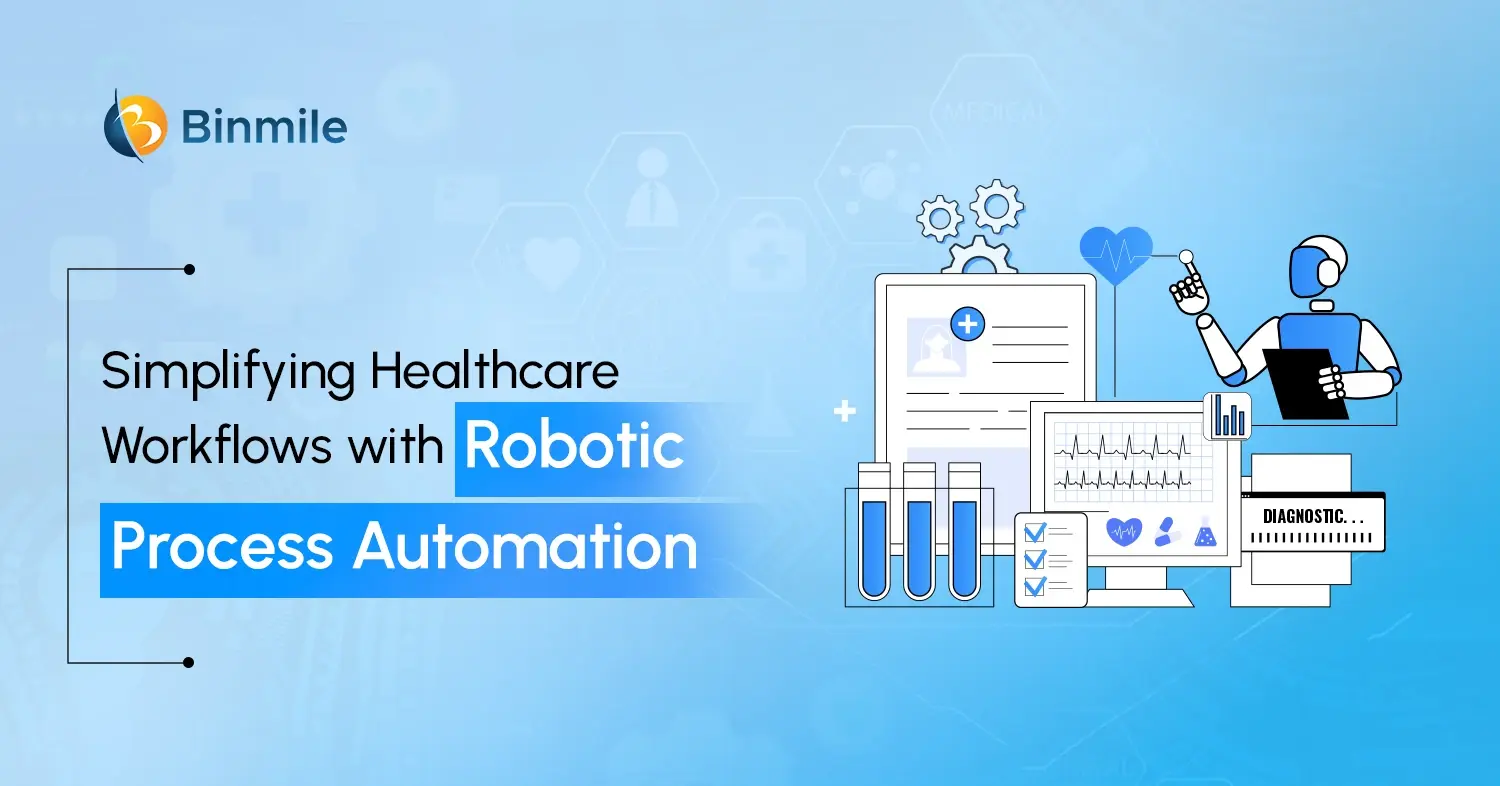If you are in business or a business owner, there’s a good chance you’ve felt the pain of trying to get a new product off the ground. Whether it’s working long hours to meet deadlines or dealing with difficult customers, the challenges can seem endless. According to market research, only a small percentage of survivors create a successful exit with trusted software development, while more than 90% of newly formed businesses fail.
However, there are ways to ease the pain and make the process much easier. With a custom software development company, it is possible to avoid the bottlenecks related to software development and make a clear plan for the product or company’s success. In this blog, we’ll explore ways to eliminate software development headaches. Let’s get started!
What is Software Development for Startups?
When starting a venture and needing custom software developed for it, entrepreneurs often turn to custom software development companies specializing in digital product engineering. The custom software development companies for startups bring expertise and the capability to develop tailored or specialized software applications and products that fulfill the needs of startups, and create a profitable business.
In addition, with experienced engineers customizing solutions specifically designed for the intended purpose, startups are sure their products are well-equipped with quality and features. They can be tested on various platforms and interfaces. This ensures startups turn their idea into something tangible and user-friendly for customers, ultimately leading to success.
Startup vs. Established Businesses: Top 5 Software Development Priorities
Startups and new businesses aim to prove their concept, draw in customers, and develop a successful business strategy. Their software development process, management, and IT infrastructure frequently reflect their objectives. Let’s go over the fundamental distinctions between software development for startups and enterprise businesses.

- Innovation-Based Strategy: Because enterprises frequently have legacy infrastructures, they must rework their systems to use the latest technologies. On the other hand, startups might choose a modern architecture that works with contemporary technology, data analytics, and machine learning to name a few.
- Easy Scalability: The majority of startups prefer cloud-based infrastructures, in contrast to larger businesses that must use on-premises equipment. Big companies, for instance, can automatically modify storage, servers, and computing capacity based on your operating requirements. Market research indicates most businesses select cloud systems for their flexibility to scale operations.
- Flexible Development: Because startups tend to have fewer stakeholders, decision-making and change implementation are relatively faster. Additionally, smaller teams are more likely to employ adaptable approaches emphasizing collaboration, mechanization, and iterative development.
- Time-Sensitive: According to a CB Insights study, around 19% of startups fail due to missed opportunities. A startup tends to have a very narrow market fit, or they might get out-competed.
- Different Audience Base: Software for startups and businesses typically targets distinct audiences. Smaller companies are attempting to address a particular issue and close market gaps. Businesses target other businesses; thus, their software includes more functionality because they have a larger emphasis.
Key Steps to Implement Software Development for Startup
Preparing for the ideal testing that adheres to specific business needs is a crucial step in software development consulting. Here’s how you can implement it by following the given steps:

1: Identifying the Target Audience
When it comes to custom software development for startups, it is important to identify the primary target audience of the product. An experienced custom software development company will be familiar with the process and can help with determining factors such as customer needs, required technologies, preferences, and more. They should also have expertise in software product development services, which will ensure that your custom solution meets all the requirements set by the market. Based on this, a customized custom software package can be tailored to serve the target audience best and is critical to the success of any startup’s technology product.
2: Conducting Market Research
To study the custom software development market for startups, it is important to understand the needs of your target customers and research which custom software development or digital product engineering companies offer solutions that fit those needs. Perform research into the various software developers currently offering services and consider their features, benefits, and pricing models. Additionally, investigate the track record of any software development company you are considering by reviewing customer testimonials or case studies — this can provide valuable insight into whether a custom software developer is a good match for your project. Finally, evaluate your options and select the custom software development company with the optimal combination of technical skills and experience to meet your individual goals.
3: Building a Strategic Development Roadmap
Developing custom software for startups can be a complicated process. To make sure that the software developed meets your needs, it is important to have a software development guide in place. This includes outlining the timeline of development, budget, and requirements of custom software components and identifying potential custom software development companies. It is best to start the search with the top custom software companies that can efficiently guide you through the custom software development process and ensure that the desired results are achieved within the allocated time frame. Having a clear software development guide will also help you track progress along every step of custom software development and ultimately give you a successful end product.
4: Designing a Scalable Business Model
Designing a business model for custom software development can be challenging for startups. There are various factors to consider when selecting a custom software development company, such as cost, quality, and turnaround time. However, by researching and understanding your specific needs, you can find the right software development solutions provider for your startup.
5: Validating with a Minimum Viable Product (MVP)
When considering custom software development solutions for startups, validating a concept with an MVP is arguably the most efficient and cost-effective way to gather important user feedback. A custom software development company can significantly assist startups in rapidly prototyping the product’s feature set without committing significant investments to a full version. An MVP or minimum viable product typically focuses on providing just enough core functionalities to solve an immediate problem and determine if market demand exists. This strategy allows startups to benefit from an expert custom software development provider while also reducing launch risks by ensuring they have a better understanding of user personas, product design validation, and market viability before diving into a full-scale project.
Kickstart your startup journey with scalable software solutions designed to grow and adapt as your business evolves, ensuring long-term success and innovation!

How to Improve the Software Development Process for Startups?
Software development can emerge as an intricate and overwhelming process, especially for startups. 50% to 80% of software development projects fail due to reasons, like lack of refined workflows and processes, which leads to:
- Increased costs
- Missed schedules
- Inferior quality of deliverables
To mitigate complexity in software development for startups, businesses must pay attention to:
- Engineering work practices
- Effective communication and campaigns
- Implementing business logic
When it comes to engineering work practices, entities should adopt an all-inclusive approach, including:
- Development of strategies around coding standards
- Code reviews
- Testing protocols
- Automated deployments
Be mindful, that running an effective communication campaign can work wonders for your software development, given that it fosters collaboration across teams and allows developers to share information about their progress quickly. What else? Teams should remember that the updated version of the application is available 24*7 by tapping version control systems, like Git or Mercurial. Finally, including business logic in software development for startups plays a key role in streamlining processes and ensuring that the expected results are accomplished efficiently. Only when you implement these methods wisely, you can enhance your software development process while reducing complexity and offering better experiences to customers.
Read More: End of Life Software Challenges
5 Ways to Accelerate Software Development for Startup: Key Tips for Success

1. Prioritize MVP Development
One of the most important tips for accelerating the process of software development for startups is focusing on MVP (Minimum Viable Product) creation. Yes, it allows them to get their product to market faster, validate their concept, and collect precious feedback from early users. The first step for MVP development is to define and outline the main features and functionalities that will be included in the initial variant of the product. The MVP should resolve the main challenge that the startup aims to address while keeping the development time minimal, the overall scope manageable, and the cost of building an MVP under control. By reducing the product to just necessary elements, startups can deploy their resources efficiently to deliver a promising and usable product that can be released immediately.
2. Embrace Agile Methodology
The biggest advantage of using Agile for software development is its inherent flexibility and adaptability. Small businesses often operate in a dynamic environment where requirements keep changing frequently. Agile methodology is something that allows bite-sized businesses to accept these changes instead of resisting them. By breaking the project into several iterations, startups can leverage a wide range of benefits, like:
- Deprioritize features
- Adjust development efforts
- React quickly to changing market demands
These benefits empower startups to stay ahead of their opponents, fulfill consumer needs effectively, and deliver software that matches the recent market trends.
3. Leverage Outsourcing
Outsourcing software development has become an extremely popular strategy to speed up the process of software development for startups. By taking advantage of external expertise, startups can:
- Get access to a vast talent pool
- Improve efficiency
- Attain cost savings
And the best part? The outsourcing approach enables startups to scale their development efforts rapidly, access specialized skills quickly, and focus on their key business objectives. Just to let you know, the outsourcing market size worldwide was worth USD 280.64 billion in 2023 and is expected to grow at a CAGR of 9.4% from 2023 to 2030.
4. Emphasize User-Centric Design
User experience has emerged as an imperative factor of late that determines the success of software development for startups. Thus, if any micro business is willing to expedite its software development process, it must pay heed to user-centric design, focusing on building intuitive and engaging experiences for its target audience. Keeping users at the center of the development process can live up to customers’ expectations and drive satisfaction and loyalty. To develop user-centric experiences, all a startup needs to do is perform in-depth user research, which involves collecting data about behaviors, preferences, and pain points through surveys, interviews, and usability testing options.
5. Foster Continuous Integration and Delivery
Last but not least, continuous integration and delivery help set up a feedback loop that makes it easy and quick to process iterations and improvements. By incorporating code changes consistently and automatically, businesses can find any issues or errors in the initial phase of software development for startups. The best thing about automated build and testing processes is that they offer instant feedback, enabling development personnel to fix issues quickly. Hence, the iterative feedback process allows startups to make continuous enhancements, eventually improving the quality of software and minimizing the time spent on fixing bugs. Another advantage of this feature is that software development for startups can be quickly modified to align with market demands and release updates or new features in time.
Is Outsourcing Software Development the Right Choice for Your Startup?
In-house or outsource software development? Whether or not outsourcing software development is a good idea depends on your business’s circumstances and needs. It can be a cost-effective way to access skilled developers and complete projects quickly, but risks are also involved. Managing an outsourced project can be difficult if you don’t have strong project management skills in-house. It’s also essential to ensure that the developers you hire are trustworthy and reliable and that the quality of the code meets your expectations. Some benefits of hiring a software outsourcing companies include:
1: Scalable Team
Throughout their existence, estimate software projects frequently alter their scope. By selecting a flexible outsourcing company, you may quickly adjust the team size based on your needs without firing individuals looking for new hires, overpaying your staff, or both.
2: Comprehensive Talent Pool
Finding qualified developers could become much more difficult as the global shortage of developers is expected to upsurge from 1.4 million in 2021 to 4.0 million in 2025, as reported by a premier global provider of market intelligence and advisory services. However, outsourcing enables you to access skilled project managers, engineers, designers, and testers outside your local labor pool.
3: Expert Management
Once you have provided the plan with your approval, it is the company’s responsibility to maintain the project’s timeline and budget. The outsourcing provider will assign a project manager to supervise the software development lifecycle and serve as your primary point of contact with the team. Additionally, you can use cutting-edge tracking tools to monitor the development, get in touch with the engineers, and approve modifications.
4: Security Backed-Up Services
Professional suppliers include the most recent methods for risk reduction, data privacy, and security in your process of software development. Through effective DevSecOps techniques like test automation, compliance inspections, and security scans, some businesses may assist you in enhancing the security and quality of your code.
5: Cost Reliable
You can remain within the budget with efficient development techniques, access to a cutting-edge technological stack, workforce flexibility, and efficient management from software development consulting.
Optimize your projects with custom software development for startups. Access top talent, low costs, and get high-quality results. Contact us to get started today!

Final Thoughts: Building a Strong Foundation for Startup Success
Research suggests that most digital-first businesses tend to hire software development solutions providers to outsource their software needs. An experienced software development services company will not only provide expert solutions, but will be capable of guiding you to make the required decisions that are the best for your startup. Binmile is your trusted partner in turning startup software ideas into reality. Are you ready for your transformation? Get in touch with us now!
Frequently Asked Questions
Software development services play a pivotal role in propelling the growth of startups in several ways:
Efficiency and Automation: By developing tailored software, routine tasks can be automated, saving time and increasing overall efficiency.
Scalability: Software designed to scale allows startups to grow seamlessly without major disruptions, adapting to increased demands.
Competitive Edge: Unique and innovative software solutions provide startups with a competitive advantage in the market.
Three most important points:
- Efficiency and time-saving through automation.
- Scalability for seamless growth.
- Competitive edge with innovative solutions.
The percentage of companies using custom software varies widely, but it’s common among businesses with specific needs. There isn’t a universal figure, and it depends on factors like industry and size. For precise data, refer to industry reports and surveys in your domain.
Quality Assurance (QA) is integral in the software development process for startups as it ensures that the developed software meets the specified requirements and standards. QA involves rigorous testing, including functional, performance, and security testing, to identify and rectify any defects before the product reaches the market.
Three key points:
- Ensures software meets specified requirements.
- Involves rigorous testing (functional, performance, security).
- Identifies and rectifies defects before product release.









